Shadow Defence Secretary James Cartlidge MP has expressed strong support for the Government’s stance on Russian maritime activity while calling for urgent measures to address growing threats to national security.
Responding to Defence Secretary John Healey’s statement in the House of Commons, Mr. Cartlidge emphasised the seriousness of the situation, stating, “Russia remains a critical threat to the United Kingdom.”
Mr. Cartlidge welcomed the Government’s increased transparency on Russian aggression, particularly regarding its “grey zone” activities, which include espionage and disruption of critical infrastructure. He noted, “It is critical for our war readiness as a nation that… we tell the British public the truth about the serious nature of the Russian threat.”
He praised the Defence Secretary’s decision to change the Royal Navy’s rules of engagement, calling it a “powerful signal to Putin that we will not be intimidated.” Mr. Cartlidge assured the Government of His Majesty’s Opposition’s unwavering support, declaring, “We stand shoulder to shoulder with the Government on Ukraine and… on deterring the wider Russian threat.”
Mr. Cartlidge urged the Government to strengthen international collaboration, particularly in protecting critical undersea infrastructure in the North Sea and Baltic. He asked whether the Defence Secretary planned to “widen the number of international partners proactively involved” and emphasised the importance of a NATO-led coordinated response.
The Shadow Defence Secretary also called for prioritising cutting-edge underwater technologies, highlighting opportunities through AUKUS and partnerships with European allies. He stressed the need for “research and development investment into capabilities to protect critical infrastructure.”
While noting the Defence Secretary’s description of Russia as “dangerous but fundamentally weak,” Mr. Cartlidge cautioned against underestimating its military capacity. He argued, “Russia’s willingness to tolerate such enormous losses on the battlefield… underlines that, in conventional military terms, it remains a formidable foe.”
Mr. Cartlidge called for a robust Strategic Defence Review (SDR) to address these threats, urging the Government to prioritise homeland defence and allocate appropriate resources. He stated, “The SDR needs to be fundamentally threat-driven, prioritising homeland defence and putting the necessary resource in place.”
Highlighting the need for immediate action, he pressed for a swift timeline, saying, “I urge [the Secretary of State] to ensure that [the SDR reports] in March, at the very earliest opportunity.” He also reiterated the Opposition’s demand for increased defence spending, highlighting the need to reach “at least 2.5% spending on defence this Parliament.”
In closing, Mr. Cartlidge commended the armed forces for their efforts in tracking Russian activity and underscored the scale of work required to protect the UK. “The involvement of the RFA, the Royal Navy, submarines, helicopters, P-8 aircraft and other assets… shows the full extent of the work needed to defend our island and deter our adversaries,” he said.
The Shadow Defence Secretary’s remarks reinforced a bipartisan consensus on the need to address the Russian threat while urging the Government to act decisively and invest significantly in the nation’s defence.


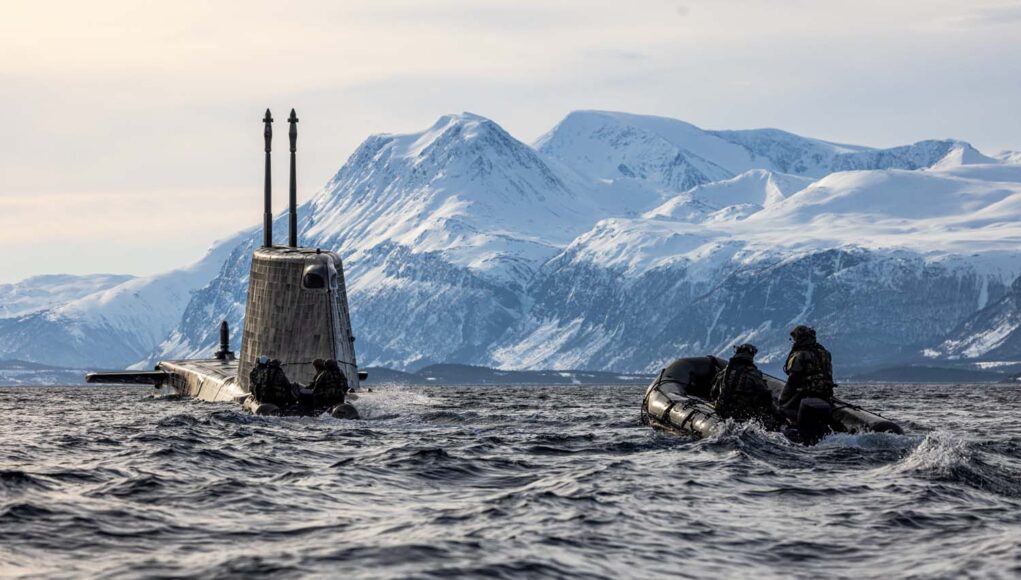
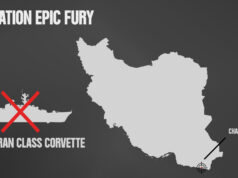
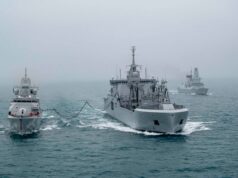

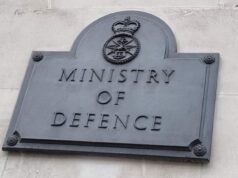

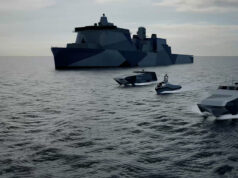

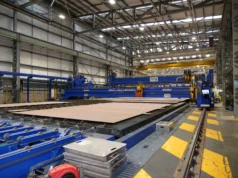
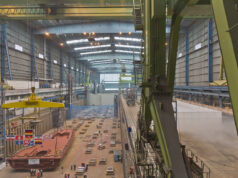


I agree with the Shadow Defence Secretary; a LOT more money needs to be allocated to defence.
However, his party failed to increase defence spending to where it needs to be, either. I find it interesting how pro-defence the parties are when they’re in opposition, yet the moment they’re in power they forget all about it… Until they’re back in opposition.
Should it be funded by taxes, cuts or borrowing? Because those are the options…
More defence spending! Why the silent voices before the election? Cameron ex-Tory leader took carriers out of service and grounded the Harrier well before their replacement was ready for service. Now the country is waking up to the fact that Russia appears to want to up the stakes against us. With Trump in power, events could either cool or heat up to a level not seen since the height of the Cold War. Sadly, most of the UK’s new military kit is years away from being available for service, yet both Labour and the Conservatives are happy to witness the withdrawal of tanks, ships and aircraft at an alarming rate leaving us even more exposed! What politicians appear to forget is the desperate state of the UK’s defences before WW2 where knives on broomsticks were not uncommon weapons for our reservists. Yet, the disposal of useful kit continues as the heat increases?????
2.5% of GDP? Seriously? According to the Official Handbook of Britain published in the year of the Falklands War in 1982, the Defence Chapter states: “Despite its economic difficulties, Britain…is increasing its defence efforts to the level required to provide the best possible guarantee of safety.” At that time, we spent 5.2% of our Gross Domestic Product on our military and defence costs for 1981-82 were 11.8% of government expenditure, so how can we possibly be adequately defended today on a current expenditure of half the 1982 level, when the Planet today is arguably in greater turmoil than it was 43 years ago? Unfortunately, we now find ourselves in a late-1930’s situation where the prospect of our direct involvement in an all-out war is real enough to warrant the replication of the increase in the rate of UK defence spending that took place before WW2. Starting at 2.9% percent of GDP in 1936, defence spending reached 3.75 % in 1938, and 9 percent in 1939. It can be done! Hopefully the Defence Review will signal the need to claw back of some of that so-called peace dividend of the 1990s!
Really we should be increasing to 2.5% of GDP this year, and gradually to 3% by the end of the decade.
Then a minimum credible force level should be set into law and only decreased with a 2/3 majority vote in the Commons.
This is a ridiculous proposition because no parliament can bind its successor. A future parliament could introduce primary legislation to overturn the 2/3 stipulation with a simple majority.
Good input David. Given the current situation I would argue that the UK needs to spend beyond 5%.
However, three principles should first be in place:
1) There is a root and branch shake out of the defence procurement process so that the UK no longer suffers form overly expensive solutions and delays.
2) Only the appropriate level of technology is used for the job (e.g. re-manufacture stuff already designed) and do it at scale to provide mass and war reserves for the basics.
3) Wherever possible defence spending should be with UK-owned companies/agencies, to retain max amount of money and benefit within the UK. Where this is not possible, preference be given to Canada/Australia, northern European/Scandies, and include Poland and Ukraine in that. the rest – including USA, France and Germany can not be trusted in the future.
I’d consider joining France on joint SLBMs to replace Trident missiles, though; move away from the US and design a common missile.
Over the nine years of the last gov. defense spending was cut in real terms. Over the first nine months of this one it has gone up in real terms by 5%! More needed but a good start, just keep ramping up like that every year and we will soon start moving back into healthy territory.
It must be odd being a shadow minister six months in to a new government with a serious majority. You need to speak up and do your job, but in reality nothing you say or do is likely to have much of an impact (whether right or wrong). You are in the public gaze but very definitely not in power.
14 years of his party dismantling the Armed Forces and now he realizes it?
LOL. the irony of a Tory Shadow Defence Secretary demanding more defence spending…
He broke my ironymeter! UK forces at their smallest arguably in centuries. Tories only savagely cut already inadequate forces to where they are now, playing their part in making Putin feel secure enough to invade UKR. Doubtful wether there’ll be any improvement under Labour. Scrapping Albion & Bulwark indicates more insane disarming.
“Prioritising homeland defence”
Absolutely right and it seems from government comments that this will be the key conclusion of the SDR. If so, this will be a big change from the 1998 SDR., when Robertson was defence secretary, that emphasised expeditionary capability. Whilst all subsequent defence reviews have largely continued this approach, right up to the integrated review and refresh, none has formally recognised that the main and growing threat is from Russia. The IR mentioned this almost as an aside but it was lost in the emphasis on global Britain.
Is own lot wouldn’t put more in the defence pot . Does he really think Labour are going increase defence spending it maybe worth while if he takes a look at the media and reads what’s happening to HMS Bulwark and Albion 🖥 🙄
The MOD needs to stop going for the newest and shiniest option. Four sqns of the far cheaper F-16 or Gripen E for homeland (and Falklands) air defence, then utilise Typhoon and F-35 (later Tempest & F-35) for frontline missions. This at least means they’d still have plenty of capable fighters for back-up should things go hot. Add in off-the-shelf options for GBAD, helicopters, weaponry, etc. Constantly trying to build new designs in-country takes too long and costs far too much
Purchasing either F-16 or Gripen E still costs money that goes straight abroad.
I’d rather a significant order of new Typhoons that would a) kick the crap out of anything threatening UK or Falklands airspace and b) supports UK industry and keeps the money in-country.
Introductions a new aircraft type, will bring additional costs of logistics and training trails etc, negativing any other savings on the airframe.
With the challenges (Russia, economic stagnation, Trump) the UK is facing at the moment, an all-party coalition should really be considered.
Good evening HMG and all other parties and those interested,
for goodness sake push up the Defence budget to levels that ensure our Defence and make our enemies more cautious.
There should be a plan between all parties to ensure continuity and stability regardless of who is in charge.
Mr Starmer and Mr Healey it’s time to move forward swiftly and strongly!
Best regards Nick
I’m sorry, but no one takes what you say seriously.
You’ve just cut for the last 14 years.
East crying wolf now with no responsibility.
Stop playing your political games.
But Rishi did set out a timetable for 2.5% at the election…..the present lot haven’t?
Things, Defence, did get better under Boris and BW did a very good job of turning some projects round.
There is a lot if below the radar investment that goes on in R&D and development. Thankfully this has been kept up.
The problem, as we are seeing, is that the industrial capacity to manufacture loads of new gear has so atrophied that even if you had all the money in the world you couldn’t simply turn the taps on. So what is needed is a significant boost to stop the penny pinching and a ramp up that favours smaller projects and not just spending it all at a few super expensive items…..DNE needs to be separate from that equation….
At least Boris set out the direction to spend 2.5%, with the ambition of heading towards 3% This was dropped like a hot potato when Sunak became PM.
And I don’t ever see it being removed. The biggest elephant in the room for me.
AUKUS and GCAP development second and third.
Well said DM!
Transfer the foreign aid budget to the MoD and that will take us to about 2.7%. Cuts to welfare (such as giving disability payments to addicts who then use it to buy drugs) will then see us get to 3% quite easily and relatively quickly. And help grow the economy as the foreign aid and money for drugs doesn’t do our economy any good.
But the irony of the Tories calling for an increase is not lost on many on this site..!
Wasn’t the cost of increasing it to 2.5% calculated by the IFS to add 12 billion pounds by year ? The foreign budget is about 13 billion pounds and some of it is loans which we get back and other project require UK spend
Sounds about right to get to 2.5% but that’s not enough to re-build the armed forces into a war fighting machine. 3% is the base amount.
Speaking of drugs, if I were in charge I’d just legalise all class B & C drugs, then regulate and tax them. Gets a good 10 £billion+ in tax revenue comfortably and give that to MoD.
I would be tempted to do the same but use the money to build secure rehab centres and then round up the addicts and put them in there for a few years until they are ready to re-integrate with society.
On defence spending I visited a defence supplier last week, they have a cost plus contract with the MoD and will be recharging the MoD for Reeves NI hike. This going on across the entire defence supply chain which means the treasury has effectively cut defence spend as more of the defence budget is now return back to the treasury through higher NI payments.
Didn’t raise his voice very loud when his bunch of gibbons were in power though did he. Too late now to actually say something sensible.
Less Wind Turbines. More Ships, Aircraft,Tanks & personnel. Would love to be able to afford both. But Defence of The Realm must take precedent. The defence budget needs to be at 3% as a minimum PDQ.
The Falklands war was an extremely costly fight over very strategic sheep located in waters weeks from Westminster. Huge efforts and humongous money needed to be spent for Imperial ego. Surely the royal empire would collapse if Falklands fell and the western civilization would be threatened like communism. Those herds of sheep are vital economic value, to practically no one. But that worthless island is utmost symbol of grand grandeur. UK has 2 aircraft carriers of which one needs to be mothballed or sold. But instead, station one carrier in the Falklands.
I’m trying to work out the nonsense from the poor grammar in your pile of words. Wars are often not about economics, Britain didn’t declare war on Nazi Germany for economic gain, and we fought in the Falklands to boot out a military Junta who invaded it, and who’s intention was to ethnically change those islands. Humans beings live there, not just sheep. In terms of the ‘royal empire’, comment, I neither understand what you mean nor care, dumbo. The ‘grand grandeur’ comment may be appropriate when describing Laurence Llewelyn-Bowen‘s bathroom, but makes no sense in any other context. As for stationing a carrier there, well you’re an idiot so I’ll not comment as my time is wasted on you, you can’t be from the UK, if you are, god help us.
Bravo.
Kudos Wasp Snorter – a well articulated reply!
Bore off Putler, Xi!
🙄
I think before any Conservative politician stands up and pronounces anything about defence they should at first apologise for arguing that meeting 2% of NATO spending was a sign of them doing a good job and that this funding was enough to resource the required defence capabilities outlined in their own Strategic Defence Reviews. They should also explain whether that absurd policy was either them being deliberately disingenuous or just being grossly incompetent.
It would probably also help to if they could role-play any apology by sticking needles into a suitable doll facsimile of David Cameron or George Osbourne..
Hillarious.
Just as a reminder in the 14 years the Tories were in power they achieved nothing but cuts cuts cuts.
Now ….all of a sudden they’ve got a conscience and want more defence spending.
Maybe they should have been better in government then the new labour government wouldn’t have an utter mess to tidy up. There are so many urgent operational requirements and equipment programmes that have been rolled forwards it’s beyond a joke.
Spain will build 2 New LHD,s (spanish)
https://www.defensa.com/espana/armada-espanola-tendra-dos-nuevos-portaaeronaves-lhd